Mollie O’Callaghan and Kaylee McKeown open up on Paris Olympic results after medal haul
They only did Australia proud but Kaylee McKeown and Mollie O’Callaghan believe they did not perform up to their high standards despite both winning multiple gold in Paris.
Swimming
Don't miss out on the headlines from Swimming. Followed categories will be added to My News.
They won 10 Olympic medals — including five gold — but Mollie O’Callaghan and Kaylee McKeown still fear they’ve let everyone down. In a raw and emotional interview in Paris, the two golden girls were left harbouring feelings that they could have done better.
McKeown reached out to comfort O’Callaghan, who fought back tears as she struggled to explain their disappointment despite the incredible success.
“That’s the hardest,” McKeown said in the exclusive interview.
“We’ve been away from home for what, close to seven weeks now? The times that we swam just did not reflect how hard we’ve been pushing, not only for just this year, but the past year. I’ve been doing times that I haven’t done ever in my entire career. And I know Mollie just sees that the same.”
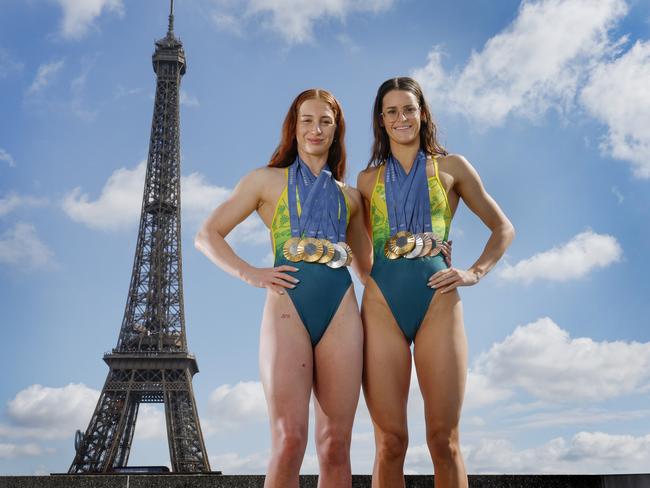
When asked if she felt proud, O’Callaghan fought back tears as she struggled to assess her own performances at the 2024 Games.
“Part of me yes, and part of me no,” she said.
“It’s all good but I think it’s a hard one because there’s so many good things, and then there’s so many shit things.
“At the end of the day, you’ve just got to be positive because many people don’t have the opportunity to stand on the podium.”
The swimmers’ reaction is a sign of the high standards they aspire to. They want to win for themselves, for their team and their country.
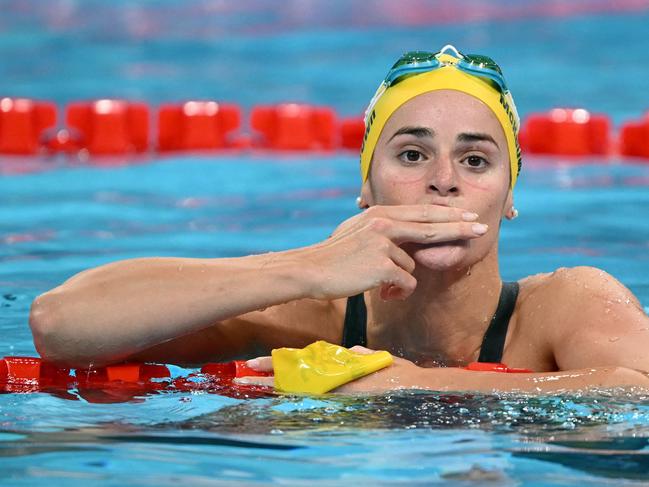
They didn’t let anyone down, of course, but after nine days of competition and seven weeks in camp, they are still processing what happened in the Paris pool. McKeown became the first Australian to win four individual gold medals at an Olympics after she successfully defended the 100m-200m backstroke titles she won at Tokyo. She also won a bronze in the 200m individual medley and two more relays in relays.
Just 20, O’Callaghan won the 200m freestyle gold in Paris.
She also collected another two golds, a silver and a bronze in relays and was desperately unlucky not to win another medal in the 100m freestyle, missing the podium by a hundredth of a second. She also has two gold medals from Tokyo so sits alongside Ian Thorpe and McKeown in second place as Australia’s most prolific Olympic champions. Only Emma McKeon, with six, has more gold medals in her career.
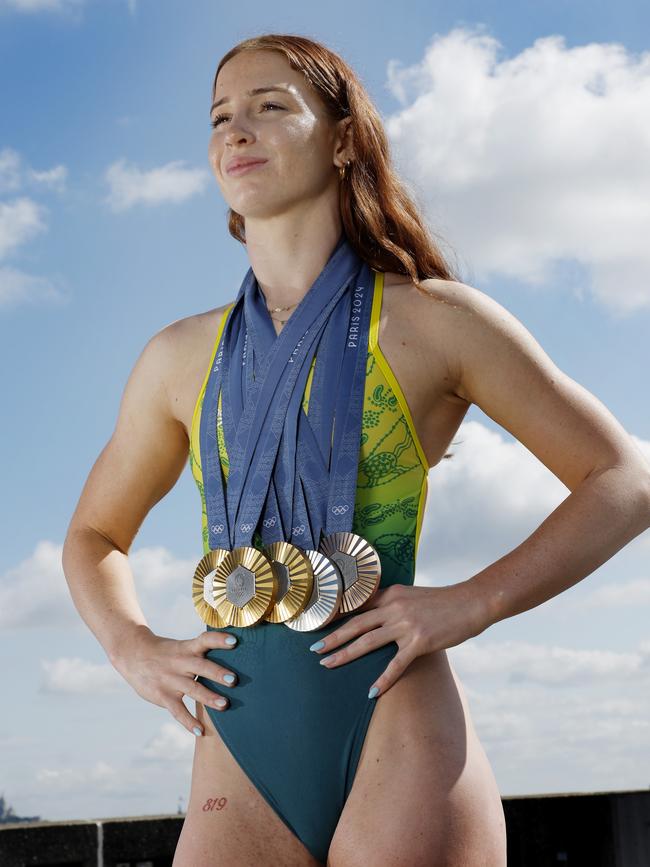
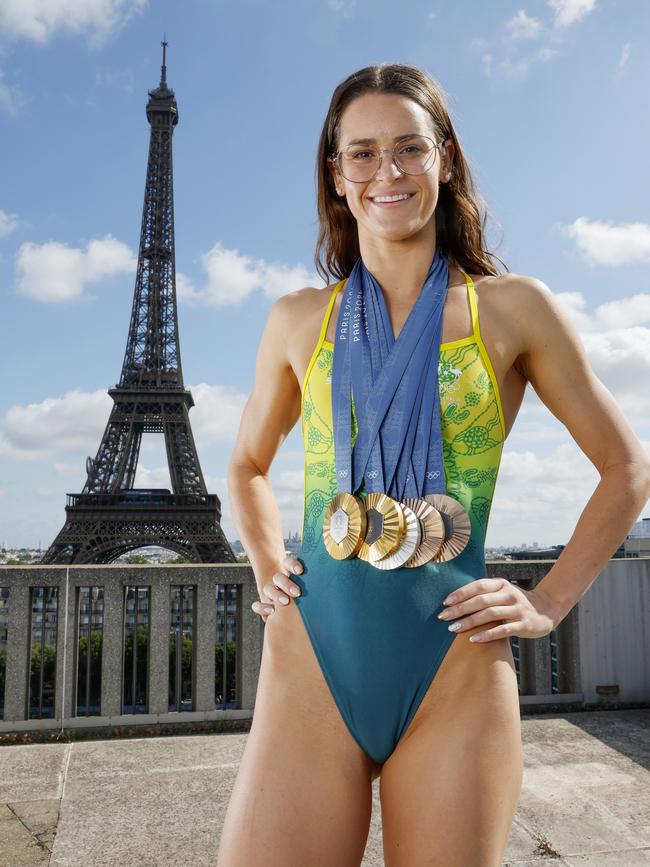
But still, she says: “I’ve worked hard and I probably deserved a lot more than what I achieved.”
While Aussie swim fans will be distressed to hear that two of our golden girls are still beating themselves up, their disappointment is a sign of the enormous pressure that Australia’s elite swimmers endure at the Olympics. The amount of training that’s required just to get picked for the Dolphins at international level is mind-blowing while the expectation on the team to win medals is suffocating, especially in the new age of social media. It’s partly why even Australia’s greatest swimmers, including Thorpe, Cate Campbell and Kyle Chalmers, have spoken out about the importance of mental health and for swimmers to reduce their expectations, but that’s not how they roll.
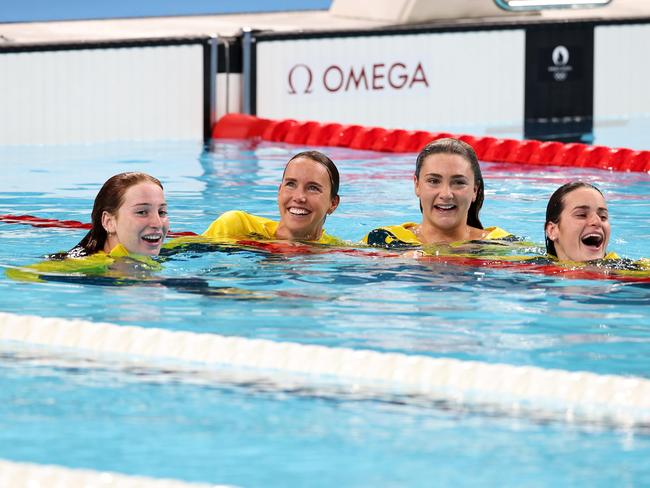
“As much as you get caught up in ‘you want a gold medal and you got a gold medal’, it’s also just the personal standards that we know that we could have pushed so much harder,” McKeown said.
“We are just frustrated within ourselves because of what could have happened, that’s the biggest thing. We’re always gonna be the hardest, harshest critic on ourselves, whether that’s making a final and missing out on the medals or getting a medal and missing out on (a fast time). It’s not being greedy, it’s just knowing that you could have done so much more and you have done the hard work to deserve that spot.”
For both women, the pressure in Paris was more intense than usual because of the reduced three year gap between Olympics after Tokyo was delayed until 2021 because of the pandemic.
Both now are finally going to take a proper break and hope that will help before they get back to training for the next Olympics at Los Angeles in 2028. “Since 2021, 2022 was a positive year for both of us and the same for 2023, and then 2024 so that pressure just keeps accumulating and accumulating,” McKeown said.
“At some point you’ve just got to pop that bubble of pressure and just go ‘oh, holy shit, that’s a lot’, and I think that’s what this Olympics has been, that opportunity to pop that and just kind of soak in what we’ve done. I don’t think either of us is disappointed with what we’ve come away with but we know we could do more.”




